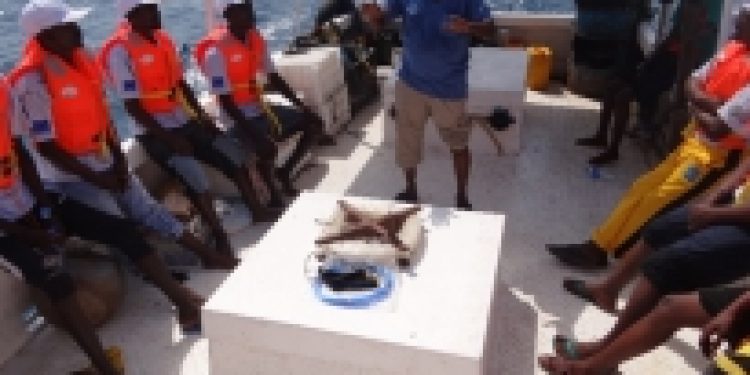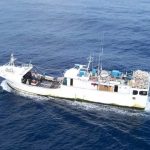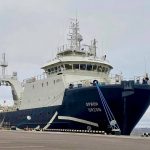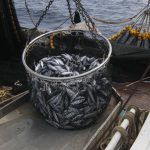Equipped with new skills and knowledge, a first group of local fishermen here are now fanning out into their home communities to organise local fisheries capacity-building sessions – part of a broad EU-backed, FAO-led effort to unlock the vast poverty-reduction and hunger-fighting potential of Somalia’s coastal fishing grounds.
A group of nine fishermen from five coastal communities in Puntland and Galmudug recently wrapped up an eight-day hands-on workshop that trained them in a variety of core fisheries skills and best practices. Proper handling of fish to reduce post-catch spoilage and waste, navigation, safety-at-sea, and engine maintenance were covered.
Participants were also taught to be coaches and teachers themselves and provided with instructional kits so that they can hold their own local training events in their home communities to share what they have learned.
The Bosaso event was the first in a series set to take pace under the Coastal Communities Against Piracy (CCAP) Project, an EU funded intervention being led by FAO in partnership with the Federal Government of Somali, Federal Member States, and coastal fisherfolk co-operatives.
Much of the learning occurred at sea onboard two FAO-designed and locally-built small-scale fishing vessels, regarded as learning laboratories that let trainees gain real-world, practical experience.
‘We need more technical, hands-on training like this, if skill levels in the fisheries sector are to be improved.’ said fisherman Abdirisack Mohamoud Ahmed, from Galmudug State.
‘This is the kind of training that Somalis can use. With many pictures and hands-on learning at every step,’ added Mumin Sadiq, of Adale.
During the workshop, trainees also studied the construction and care of FADs that prompt underwater plant life to flourish and so attract fish, creating new high-density fishing areas where none existed before.
Given Somalia’s 3300-kilometre coastline and rich marine resources, fisheries hold huge potential as an engine for economic growth, poverty reduction, and strengthened food security.
The workshop in Bosaso enjoyed strong support from the Puntland government. Instructors leading the session included experts from the Puntland Ministry of Fisheries and Marine Resources, the Ministry of Ports, and the Ministry of Marine Transport, as well as FAO staffers.
A similar event is being organised elsewhere in Somalia that will involve fisherfolk from HirShabelle State, South West State and Mogadishu.
Follow-up training will both bring onboard new, additional coaches as well as build on and expand the knowledge and skills imparted to fishermen who were involved in the initial sessions.
Launched last November, the multi-year, €5.30-million CCAP project is tackling some of the root causes of economic marginalisation in Somalia’s coastal communities, which can drive people to participate in maritime crime.
Via a range of activities, the CCAP is enhancing fisheries livelihoods in coastal Somalia, providing at-risk communities, households and individuals with skills and knowledge that can help them cope with adversities and pursue new economic opportunities.









